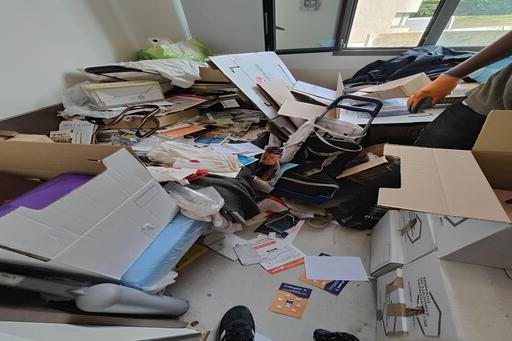Diogenes syndrome: how to clean your house ?
Diogenes syndrome is a mental disorder that involves hoarding and excessive accumulation of possessions. It is often associated with depression, anxiety and social isolation. Hoarders may have difficulty parting with their possessions, leading to cluttered homes and an inability to keep up with basic house cleaning tasks.
It is in this context that specialized cleaning companies intervene, offering their services to restore order and hygiene in these neglected spaces.
In this article, we will examine how these companies are approachingCleaning Diogenes Syndrome, taking into account unique challenges and best practices. Let's find out together how a cleaning company can be a valuable solution to help affected people return to a clean, healthy and safe environment.
What is Diogenes syndrome and how does it affect he cleaning the house?
Diogenes Syndrome is a behavioral disorder characterized by the excessive accumulation of objects and waste in the domestic environment. People with this syndrome often have difficulty getting rid of possessions and neglect household chores, leading to unsanitary and unsafe conditions in their homes. This disorder is usually associated with mental health problems, such as depression, anxiety or personality disorders.
Cleaning your home can be an important step in managing mental health syndrome. Diogenes, as it can help reduce clutter and create a healthier living environment.
The large amount of accumulated items and waste can make the task overwhelming and requires a methodical approach. Additionally, unsanitary conditions can pose health and safety risks to those performing the cleaning. It is therefore essential to take these challenges into account when planning the cleaning process.
Facing the complex challenges ofcleaning unsanitary housing, it is recommended to hire a specialist cleaning company. These professionals are trained to deal with the most difficult situations and have the skills, equipment and products necessary to deep clean and disinfect the environment. Their expertise makes it possible to effectively manage health risks and ensure a complete and safe cleaning of the house.
By understanding the characteristics of Diogenes Syndrome and the cleaning challenges it poses, it becomes obvious that the intervention of a specialized cleaning company is often the best solution to restore order and hygiene in these neglected homes. By working closely with those affected, these professionals can provide much-needed expertise and support to help restore a clean, healthy, and safe environment.
How to Overcome Hoarding Tendencies and Take Back Control of your home?
The tendency to hoard, also known as “compulsive hoarding,” can have a significant impact on our well-being and quality of life. It is characterized by the excessive accumulation of objects and the difficulty in separating them, which can lead to chronic clutter and disorder in our living space. However, there are steps you can take to overcome these tendencies and regain control of your living space. Here are some helpful tips:
- Recognize and accept the problem
The first step to overcoming the tendency to hoard is to recognize that there is a problem. Accept that excessive hoarding is detrimental to your well-being and quality of life.
- Identify the underlying causes
Explore the reasons why you hoard . Is it linked to feelings of anxiety, fear of missing out or value attached to each object? Understanding the underlying causes will help you better manage these tendencies.
- Be compassionate with yourself
The tendency to hoard is often linked to emotional and psychological problems . Be kind to yourself and recognize that you are not alone in this fight. Consider seeking professional support to help you overcome these challenges.
- Make an action plan
Develop a realistic action plan to declutter your living space. Set specific goals, such as sorting one room at a time, and determine practical steps to help you sort, organize and dispose of unnecessary items.
- Practice sorting
Lorsque vous triez vos objets, utilisez une approche basée sur la question « Est-ce que cela me procure de la joie ou une utilité réelle ? ». Séparez les objets en catégories telles que « à garder », « à donner » ou « à jeter ». Faites don des objets en bon état à des organisations caritatives locales.
- Learn to let go
Letting go can be difficult, but it is an essential step in overcoming the tendency to hoarding. Remember that items don't define who you are, and you can create a healthier, more harmonious living space by getting rid of unnecessary clutter.
- Create organizational systems|| |185
Une fois que vous avez désencombré votre espace, créez des systèmes d’organisation simples et efficaces pour éviter le retour à la thésaurisation. Identifiez des endroits spécifiques pour ranger chaque type d’objet et maintenez-les régulièrement.
- Call a cleaning and disposal companyget rid of Diogenes syndrome
N’hésitez pas à demander de l’aide à des professionnels de l’organisation si vous vous sentez dépassé par le processus de désencombrement. Le soutien et les conseils des professionnels de débarras peuvent vous aider à rester motivé et à maintenir vos progrès.
By overcoming hoarding tendencies, you can take back control of your living space and create an environment which promotes mental clarity, inner peace and joy. Be patient with yourself and remember that every little step counts to build a lighter and more fulfilling future.


